Students vs. Environment Minister Altmaier – twitterview on Global Ideas
Germany’s energy turnaround, the so called “Energiewende,” is a hotly-debated issue in the country. It’s way too expensive for Germany to wean itself off nuclear energy and fossil fuels and boost renewables, say some. Others argue it’s a Herculean task, impossible to translate into reality.
But who else if not Germany would be able to pull it off? Given its track record in green issues, Germany could become a role model and not only for other industrialized nations. So does the planned “Energiewende” stand a real chance at being successful? The debate was further fueled after German Environment Minister Peter Altmaier said the project will cost 1 trillion Euros until the end of the 2030s. What he did not say was how exactly he arrived at this impressive number. His statement prompted huge criticism and heated debate among energy experts.
Amid this backdrop, Global Ideas held a twitterview ahead of a discussion forum at the Berlin-based Hertie School of Governance. Students from all over the world had the chance to direct their questions online at Minister Altmaier.
On Wednesday, Altmaier will be on the panel together with Winfried Kretschmann, the Green Party’s first state premier in Baden-Württemberg. The two are set to discuss pressing issues surrounding the “Energiewende” with the Hertie students. The twitterview offered a taste of what’s to come.
@timbales asked about the opportunities to reduce the costs of the “Energiewende.”
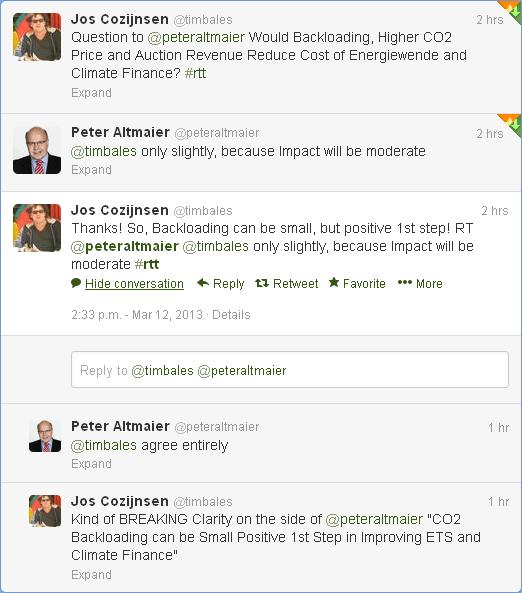
Another question by @markre referred to the role of the opposition ecologically-minded German Green Party in the energy transition process. Altmaier said the Green Party had played an important role in the process in the beginning:
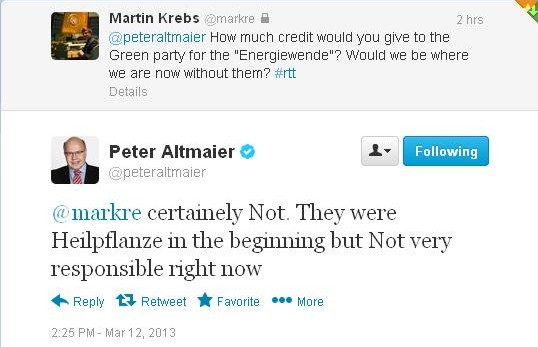
Another question by @markre was if the “Energiewende” could be an insurance against rising prices. It certainly is, Altmeier said, but in the long run.
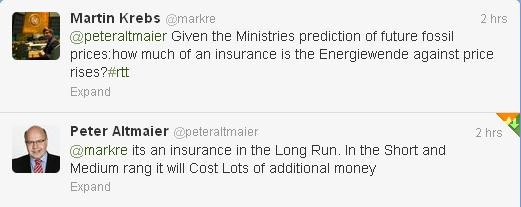
There was also a discussion in German about the upcoming federal elections in September this year. @alexzirkel wanted to know if there is a need for an “Energy minister.” A position focused exclusively on energy issues is currently not foreseen in the German parliament. The Twitter user also wanted to know who would be the best man for the job. Interestingly, neither of the two politicans in the Twitter discussion rubbished the idea of an exclusive ministry for energy issues. We’ll have to wait and see what happens after the election.
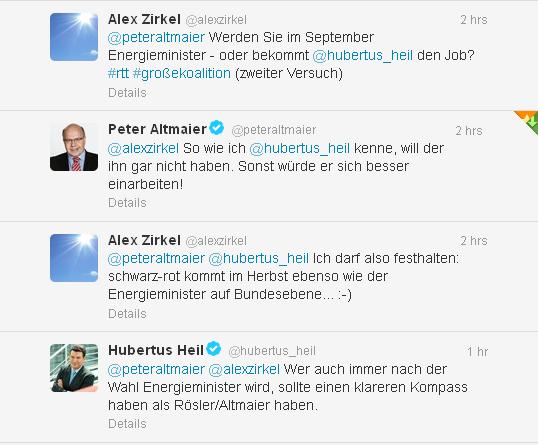
If you want to get more details on the “Energiewende,” you’ll find an overview as well as insights and background information on the Deutsche Welle website.
In Germany, 2011 was sunnier than ever
 No, no. Not what you might think. With a summer just as miserably rainy as the ones before and a winter mild but overcast as ever, Germany probably has not clocked more hours of sun shine than usual last year.
No, no. Not what you might think. With a summer just as miserably rainy as the ones before and a winter mild but overcast as ever, Germany probably has not clocked more hours of sun shine than usual last year.
But price hikes in fossil fuels and plummeting costs for solar energy systems have lead Germans to opt for solar energy big time in 2011. 18 billion kilowatt-hours to be precise. That’s a staggering 60 percent more in solar electricity output than the previous year, the German Solar Industry Association announced. In 2011 Germans slapped a record number of solar panels onto rooftops and walls of their homes, public buildings and industry installations. By November the one Millionth photo-voltaic system was connected to the grid.
What’s more, even from the economics point of view nuclear power is beginning to look decidedly unsexy compared to solar power – something that die-hard supporters of nuclear hadn’t deemed possible in the foreseeable future. And that’s not just because better economies of scale and new technology are lowering the price tag on solar. Not least due to Fukushima new nuclear power plants have simply become uninsurable.
In memory of Wangari Maathai
She was the first woman who got the Nobel Peace Prizein 2004 for her campaigns to save Kenyan forests. Kenyan environmentalist, Wangari Maathai, died on September 25th while undergoing treatment for cancer at a hospital in Nairobi. She worked over the last decades to plant over 20 million trees throughout Africa. She always had to battle with the government of her country. She was imprisoned and brutalised, but she won.
In 1977 Wangari Maathai founded the Green Belt Movement. The organisation will outlast her. “You cannot protect the environment unless you empower people, you inform them, and you help them understand that these resources are their own, that they must protect them,” she said and she was definitly right.
Here you’ll find a video (“I will be a hummingbird”) that is worth watching to get a sense of Wangari Maathai.
At the organisations homepage you can share your condolences.
24 Hours of Reality
The Climate Reality Project, founded and chaired by former US Vice President Al Gore, will host a 24-hour event beginning on September 14 in what the organizers hope will mobilize the world to confront the reality of the climate crisis. 24 Hours of Reality will take place around the world from Pakistan to Cape Verde, and from Indonesia to Alaska.
“Extreme droughts, terrible storms, and larger floods are devastating many parts of the world,” said Gore. “Today, climate change is no longer a prediction: It’s a reality. Yet around the world, we are still subjected to polluter-financed misinformation and propaganda designed to mislead people about the dangers we face from the unfolding climate crisis.”
The former Vice President added: “The time to face reality is now. 24 Hours of Reality will bridge oceans and cultures — in every time zone — to bring the world together to emphasize the truth about the climate crisis and how we can solve it.”
24 Hours of Reality will be presented in 13 languages, with one presentation for each time zone. At 7 p.m. local time during each of the 24 Hours of Reality, a citizen activist will connect the dots between extreme weather and a warming climate, highlighting both the impacts of climate change and the inspiring solutions emerging in each time zone around the world. These local presentations will be interlaced with a studio presentation from New York City, featuring videos, live interviews and more.
The event will begin in Mexico City on September 14 at 7 p.m. Central Time, move westward around the globe, and conclude with a presentation in New York City by former Vice President Gore on September 15 at 7 p.m. Eastern Time.
Melt!
Melt! is Europe’s largest indie and electro music festival. Taking place in July every year, the 2011 installment saw 150 DJs and bands perform in front of a 20,000 strong crowd. When the music plays the heat is on. That’s not always a good thing: instruments, lighting, logistics plus thousands of fans camping out on site are gobbling up huge amounts of energy. The CO2-emissions of the 3-day event are on a par with that of a small town. But this year climate protection is part of the act. Find out how in our latest GI report.
In addition here are interviews on the issue with some of the artists. Daniel of projecthires.com has quizzed the Melt!-line up about climate change and the need for action.
Click here for more of Daniel’s video interviews.




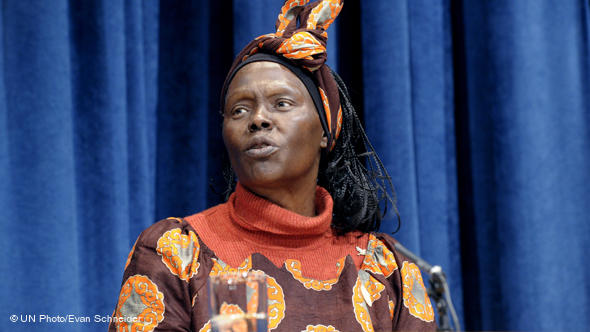




Feedback